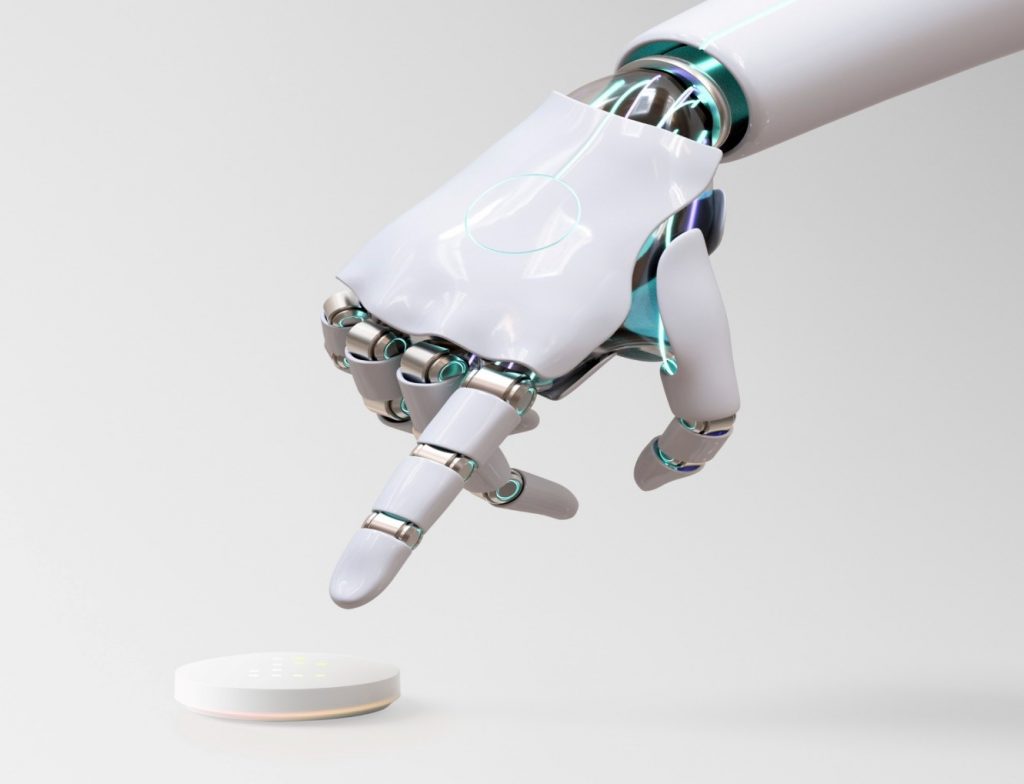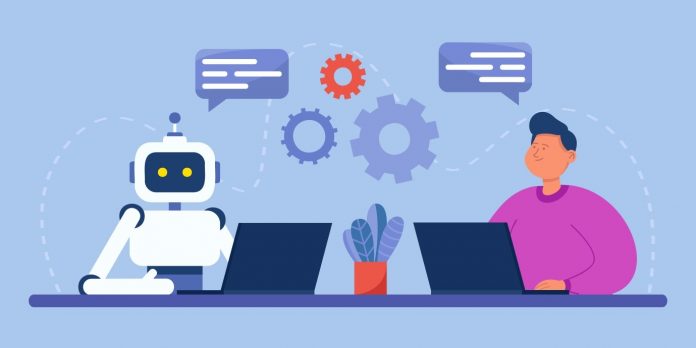By 2030, we will see advances in the following advancements in artificial intelligence (AI):
- Robots that can conduct physical tasks with high precision and speed, replacing people in many jobs.
- AI assistants that can help with communication and decision making, especially on mobile devices.
- Analytics 3D capabilities that extract insights from large amounts of data to inform corporate decision making.
- Automated translation systems that can understand sentences in two different languages and translate them into one another seamlessly.
Robots will enter workplaces from multiple industries and service sectors by 2025.
Robots will enter workplaces from multiple industries and service sectors by 2025.Robots are already being used in warehouses, hospitals and Manufacturing Industries across the globe. As they become more advanced, they will be able to perform more tasks autonomously.
The role of human intelligence in the future depends on new technology.
The role of human intelligence in the future depends on new technology. AI will become more common sense, and it will be able to think, stumble, learn and improve.
The concept of artificial intelligence (AI) has been around for decades but its potential has only recently been realized through rapid advancements in computer science. The first major breakthrough came in 2009 when Google’s artificial-intelligence program Alpha Go beat South Korean grandmaster Lee Sedol at Go—a game that requires intuition to play well but can be learned by almost anyone with enough practice time. Since then there have been numerous other successes: In 2015 DeepMind won a $200 million contract from Google for playing Jeopardy! against Watson; last year Microsoft bought Maluuba for an undisclosed amount; Facebook announced plans to use AI technologies such as neural networks so users can chat with their friends without typing anything; Tesla uses its own self-driving car software called Autopilot which allows drivers take control only if they’re confident their hands are ready on the steering wheel before taking over again after stopping at red lights etcetera…
Machines are getting smarter.
Machine learning has many applications; including improving the accuracy of natural language processing, image recognition, and video game playing. It can be used to detect fraudulently obtained goods at airports or other locations where security screening is conducted; it’s also used by banks that want their customers’ payment histories analyzed before approving loans (and thus avoiding costly mistakes).
Machine-learning algorithms are applied as part of many types of sensors—that is, devices for gathering information about our environment—including cameras and radar detectors; even medical imaging machines such as CT scans use machine-learning algorithms when analyzing images taken during an operation so they can flag abnormalities that might cause health problems later on down the road
Propelling artificial intelligence forward is being tricky.
AI is a difficult problem. It’s one that has been around for decades, and even though it’s now at its peak of popularity and research, it continues to be notoriously hard to solve—and not just because of the technology itself.
AI is also difficult because it’s so intangible; you can’t see how your computer thinks or what makes your voice-activated assistant respond when you ask her a question like “What time is the next train from here?” You have no idea if she’s actually listening or whether she even cares about anything other than meeting your needs as quickly as possible (which might not actually be all that fast).
So what does this mean for us? Well, it means that artificial intelligence will continue pushing forward with unprecedented speed despite these challenges: As long as we continue developing new ways of understanding AI systems’ inner workings and finding ways around them (such as machine learning), then we’ll keep improving our ability to create smarter machines—which will ultimately make life easier for everyone who relies on technology every day!
Computer systems that can think, stumble, learn and improve
- AI is a broad field of study that encompasses many areas, including computer science, cognitive science and neuroscience.
- It’s not just about computers or machines; it’s also about people.
- AI isn’t just about technology; it’s also about culture and society as well.
AI is becoming more “common sense”
AI is also becoming more “common sense.” It’s used to help people with disabilities, Alzheimer’s, cancer and heart disease. The first use of AI in healthcare was back in the 1950s when IBM created an expert system (an artificial intelligence program that has been programmed to answer questions) that could analyse medical records and give advice on treatment options for patients. In recent years we’ve seen a big increase in this kind of technology being used by doctors, nurses and other health professionals: they can now use it to diagnose diseases at a glance instead of going through hours upon hours’ worth of paperwork just to figure out who needs what kind of treatment based on symptoms alone (which can vary from person-to-person).

AI scientists are learning how to design AI systems that mimic the human mind
AI is becoming more common sense. We’ve been using it for years, but now it’s starting to feel like an everyday thing.
AI is getting better at mimicking the human mind. AI systems are able to learn, improve them and understand their environments through data analysis and machine learning techniques.
AI is getting better at learning from its own mistakes: For example, if you give an AI system a task that it doesn’t know how to complete—like solving a puzzle—it may try one approach after another until it finds something that works (the best option). This process helps researchers understand how machines work better than they could before because they can see exactly what went wrong in each step along the way!
AI is primed for exponential growth in the coming years
AI is primed for exponential growth in the coming years. The field is already becoming a key part of our lives, and it will only continue to grow stronger as time goes on.
AI is a rapidly growing technology that has been around for over 50 years but only recently has become mainstream. Google’s Tensor Flow machine-learning framework was released in 2015, making it one of the first open-source libraries available on GitHub (the popular code repository). Since then many companies have begun using deep learning models for tasks like image recognition or speech recognition; these models are trained using large amounts of data from multiple sources—such as images or video footage—and can be used across different types of applications like text analytics (analyzing text), visual search engines (recognizing objects within images) and autonomous vehicles (driving autonomously).
AI and computers are already at work in our lives.
AI and computers are already at work in our lives.
- You’ve probably encountered an autonomous vehicle or smart speaker that can help you with things like the weather or your commute to work. These are just a few of the many examples of how AI is already helping people every day, either by providing information or performing tasks on their behalf.
- Humans aren’t the only ones benefiting from this technology—it’s also being used to improve healthcare, education and more! With advancements like deep learning algorithms that allow us to understand how people learn better than ever before (and even predict which students will succeed based on their test scores), artificial intelligence has taken over many aspects of daily life without us even realizing it yet…
We are making rapid progress with artificial intelligence
AI is already at work in our lives. Its helping us make decisions, it’s helping us do our jobs better, and it’s even making a difference in how we live our lives every day.
AI is also changing the way people learn as well as solving problems that have plagued mankind for centuries. With artificial intelligence revolutionizing the world around us at an exponential rate, there are many opportunities ahead for businesses and individuals alike.
Conclusion
Artificial intelligence (AI) is progressing at an exponential rate. It’s poised for further advances in the next decade and beyond. The world is about to enter an era of intelligent machines, where computers increasingly do things that used to be done by humans. We’re already seeing this unfold in many ways. AI systems that can see, hear, touch, learn and communicate will soon be interacting with people every day. In fact, it’s already happening—in a limited way. We’re seeing AI-powered voice assistants such as Apple’s Siri and Amazon’s Alexa become more familiar parts of our daily lives. Machines have also become much better at playing video games like Go or chess. And self-driving cars are now on the road for public use. There are many other kinds of intelligent machines under development too: autonomous delivery robots; medical robots that can help us live longer; automated farm machinery ; robotic surgery helpers ; self-healing materials; and surgical instruments that heal themselves . The number of possible applications for these types of robots is vast—we won’t even begin to see them all deployed out in the real world over the next decade or two. But I think most people agree there are lots of exciting possibilities ahead when it comes to human-technology collaboration.




